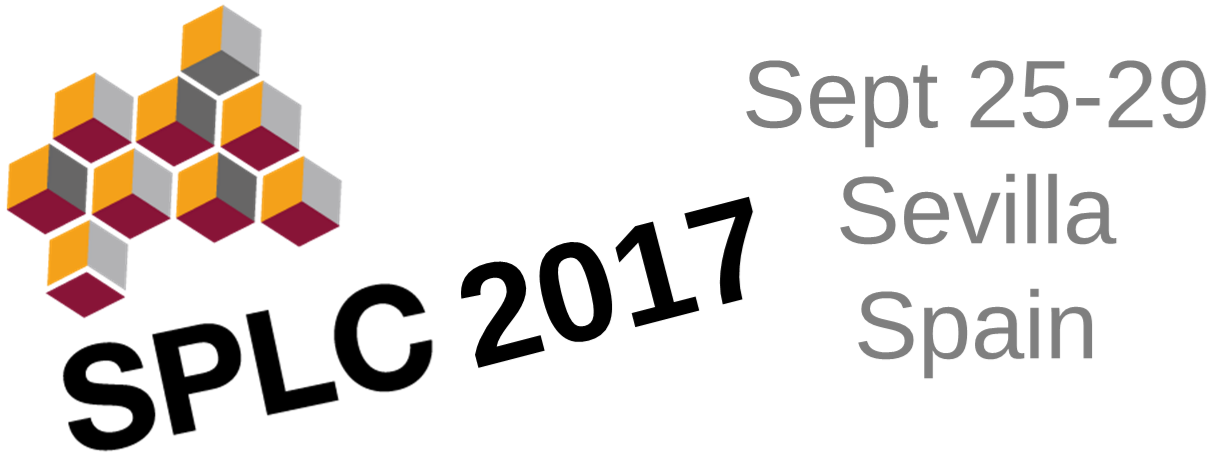CONTEXT
The Software Product Line practice has reached a considerable level of maturity along the past 20 years. The classical SPL dual-life cycle development approach used along two decades needs to address current software development challenges such as Software Ecosystems and Systems that demand runtime behavior. Emerging paradigms like Dynamic Software Product Lines are introducing organizational changes, while others consider application engineering harmful to realize and configure the SPL products. In addition, the evolution of representation and implementations techniques for supporting the variability in product line architectures (PLAs) have to struggle now with many runtime challenges that must be supported by smart and autonomous systems that exhibit some kind of runtime and adaptive behavior. Finally, with increasing speed in industry, the link between business and R&D needs to be ever closer and software product lines need to support a world in which continuous deployment of customer value through new software is the norm. All these concerns demand to revisit the state of the art of the SPL field and update old concepts and development strategies able to support better the business challenges of continuous innovation and deployment strategies and strengthen the link around the business ecosystem.
For these reasons, the goal of the Future of Systems and Software Product Lines under SPLC 2017 is to define new research directions on both organizational and technical aspects of SPL practice able to cope with new development challenges. We encourage disruptive and vision papers based on bold arguments apart from the traditional perspective of SPL Engineering (SPLE) and reinvent the new Hall of Fame of SPL in industry. The Future of Systems and SPLs encourage a variety of submissions based on innovative ideas that provoke alive discussions on how to engineer complex Ecosystems and handle the variability of the product portfolio more flexible and open to unforeseen changes.
IMPORTANT DATES (AoE)
- Abstract submission:
Mar 10, 2017 Mar 17, 2017 (extended)
- Paper submission:
Mar 17, 2017 Mar 24, 2017 (extended)
- Notification: May 10, 2017
- Camera-ready papers:
June 5, 2017 Jun 22, 2017
TOPICS
We solicit papers on the following areas and topics (but not limited to):
Organizational development strategies and Ecosystems:
- Survival and practice of the SPL dual-life cycle for building modern Ecosystems
- Organizational changes in Dynamic SPLs
- Open-innovations business models using a SPL
- SPL strategies for continuous delivery and deployment
- SPL adoption in industry
- Mega and multiple product lines management challenges
- Organizational and development teams and business units using a SPL
Challenges derived from runtime concerns, continuous deployment, and tool support:
- Dynamic variability approaches extending the runtime concerns of conventional SPL
- Representation of variability in context-aware systems (Robots, IoT, Clouds, Smart Cars, Unmanaged Vehicles, etc.
- New tools supporting current SPL challenges
- DSPLs in support of continuous evolution and deployment
Industry challenges, trends and new research opportunities:
- Swarm technology and collaborative aspects in system features
- Reversing variability models to turn industry products into a SPL
- Application of SPL/DSPL in new domains/systems
- Variability in Software Ecosystems
- New SPL and variability management tools and languages
- Variability visualization techniques
- Integration of machine learning and deep learning into SPLs
- Building families of autonomous systems
- The impact of computing moving to the edge/Internet of Things
- Product lines for new application domains, such as smart grids, connected healthcare, infrastructure and government
- SPLs for decentralized solutions such as Blockchain
SUBMISSIONS/PUBLISHING
FS-SPL papers must clearly motivate and illustrate a rationale for changing current practice and/or research in software product lines engineering or related fields. We solicit long papers (up to 10 pages) and short papers (up to 5 pages). Long papers for the Vision Track require supporting evidence for the claims made; short papers do not require evaluation results but can optionally be presented.
The FS-SPL Track provides a forum for innovative, thought-provoking directions in software and system product lines aiming to accelerate the exposure of the community to promising and potentially inspiring research and engineering efforts. Contributions should provide novel, soundly motivated research and engineering directions and emerging results.
A FS-SPL submission should not be a position statement or an SPLC research submission that lacks of enough validation. Papers are fundamentally different in nature, focusing on future trends and directions.
Submissions must follow the ACM proceedings format and will be reviewed by at least three members of the SPLC 2017 FS-SPL program committee following high scientific standards.
The ACM styles have changed recently, and all authors should use the official 2017 ACM Master article template.
Latex users are indicated to use the “sigconf” option, so they are recommended to use the template that can be found in “sample-sigconf.tex”. In this way, the following latex code can be placed at the start of the latex document:
documentclass[sigconf]{acmart}
acmConference[SPLC'17]{21st International Conference on Software Product Line}{25--29 September, 2017}{Seville, Spain}
At least one author of each accepted submission must register and attend SPLC 2017 in order for the submission to be published.
CHAIRS
